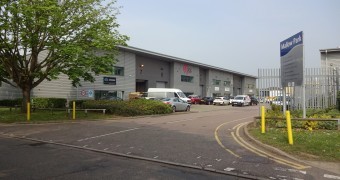Table of contents
How to minimise commercial property costs
In business, as in life, it’s important to control your outgoings. Minimising costs can sometimes make the difference between a negative or a positive bottom line – it really is that important. We take a look at how you can control costs if you’re the occupier of a commercial property.
Find Commercial Property
Regardless of your commercial property requirements, our team of experts are perfectly placed to help give you the right knowledge when you need it the most. Browse our available commercial property here. If you can’t find what you’re after or have any other queries then please contact a member of the team who will be happy to help.
How to negotiate rent costs
After staff costs, rent will probably be your biggest outlay. Most experts agree that rent will amount to around 60% of your occupancy costs, so it’s worth taking the time to select exactly the right commercial property for your needs both now and in the medium-to-long-term future – few businesses can cope financially with a move after only a short time in occupancy. It makes sense, therefore, to try to negotiate the rent down as much as possible before signing the lease.
If you can persuade your landlord to give you a rent free period, so much the better. Another factor to consider is whether your landlord is charging you VAT on your rent. If you can negotiate for this to be excluded, you’ll make a substantial saving – VAT is currently 20%. If you do have to pay this additional expense, ask your accountant about how much you can recover.
Experts in commercial property
Contact our team of leading auctioneers, property agents, and RICS-qualified surveyors today.
Managing service charges
Service charges can eat into a budget and fluctuate unpredictably, making any attempt at cost control difficult. It is imperative that you check the lease before you sign for clauses which may be ambiguous as to whether an item is a service or a repair and maintenance issue. Try not to have items of capital expenditure included in your lease and check what’s included and what isn’t so you’re not faced with an unexpected outgoing when you need it least.
How to be more energy efficient
An efficient programme of repairs and maintenance will do wonders to cut your energy bills, but you can also reduce them further by controlling the heating/air conditioning in your building to ensure a steady, comfortable temperature for staff, having your boiler or air con system regularly serviced, encouraging employees to turn lights off when they’re not needed (or fitting occupancy sensors), and making sure that the building is as well insulated as possible to reduce heat loss. Also ask your landlord about changing to an energy provider with a lower tariff, if possible.
What are the benefits of energy efficiency?
Being energy efficient has two major benefits. Not only will you be doing your bit to save the planet, but cutting down on your energy usage will also save you money. Up to half your business’ energy costs will go on heating and/or cooling so it is a massive outlay that can be reduced with a few simple measures.
Check the Energy Performance Certificate your landlord provides to find out how energy efficient the premises is before you move in – it should give you a good indication of how much you have to budget for bills.
Simple steps like these can effectively cut costs on commercial properties and help improve your bottom line. If you’d like more information about any aspect of leasing a commercial property get in touch. The Eddisons team can offer you up-to-date and relevant advice on renting a commercial property whether you’re new to business or a seasoned professional.









